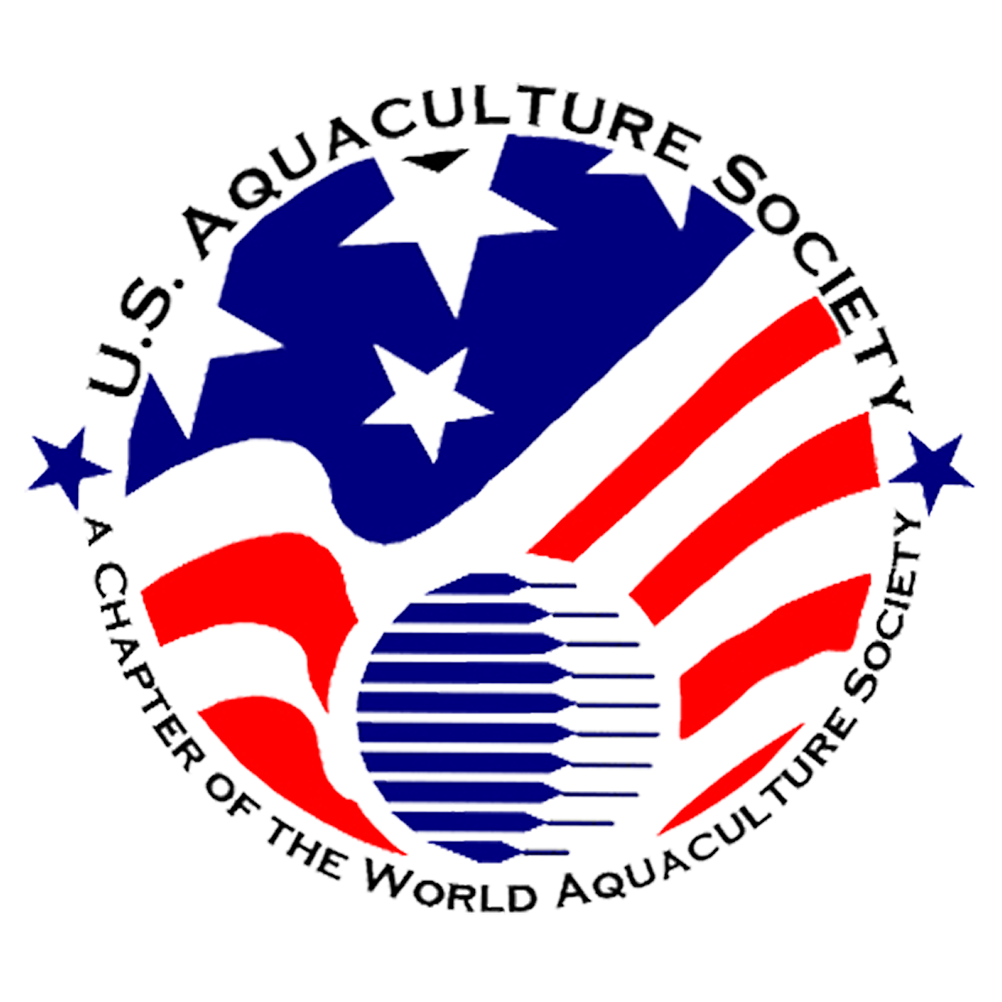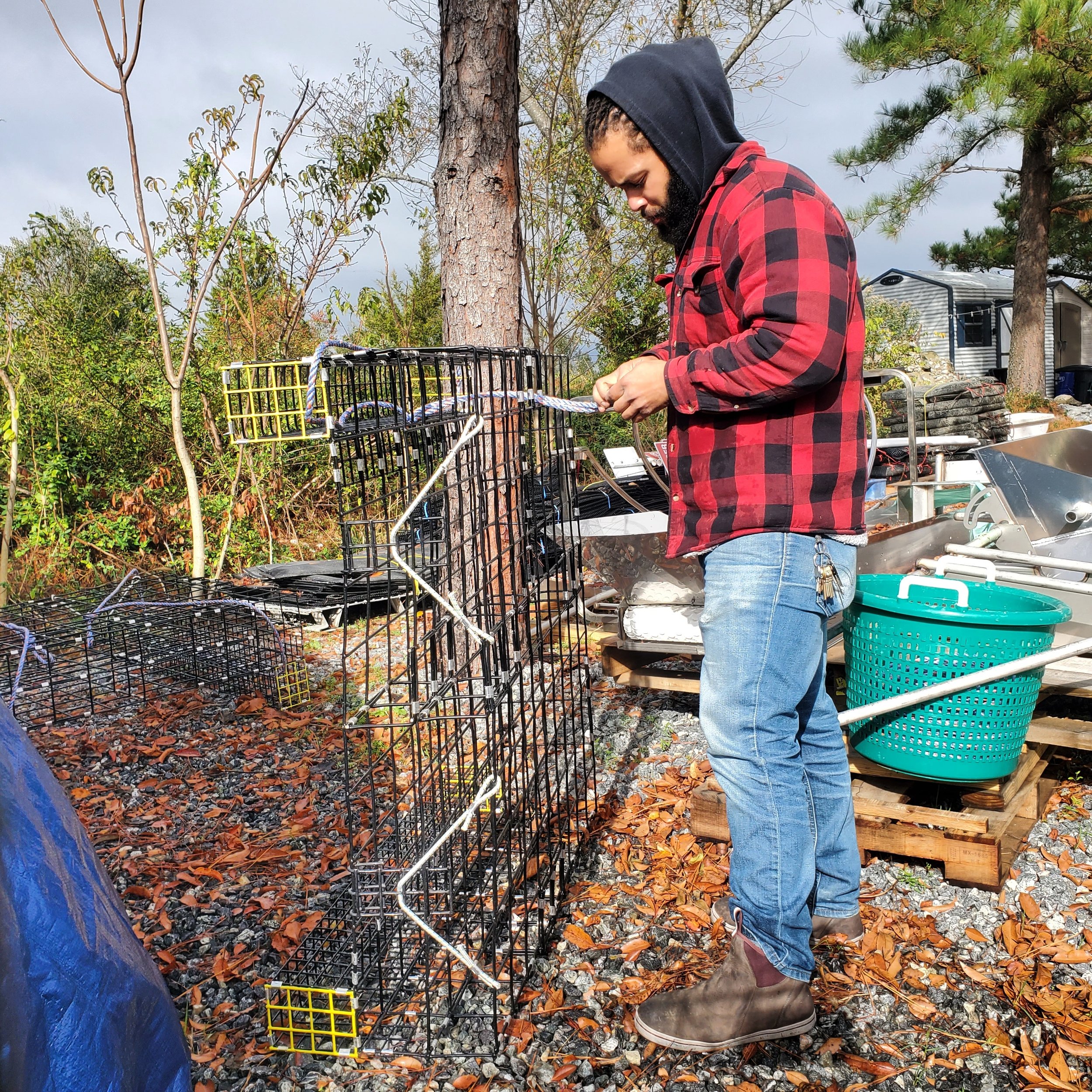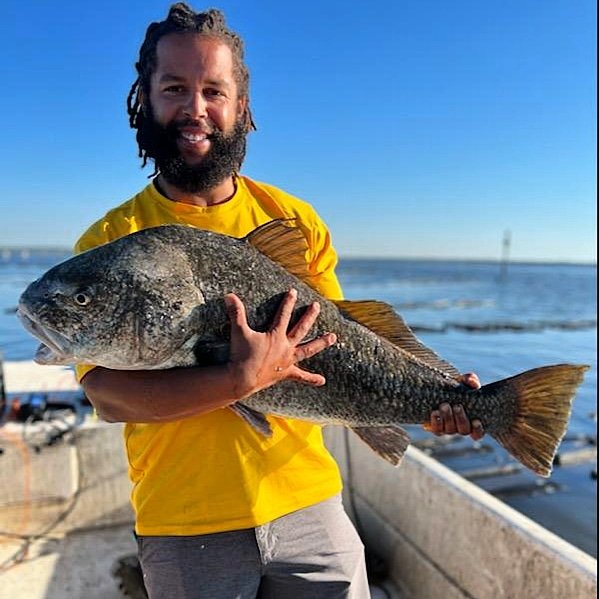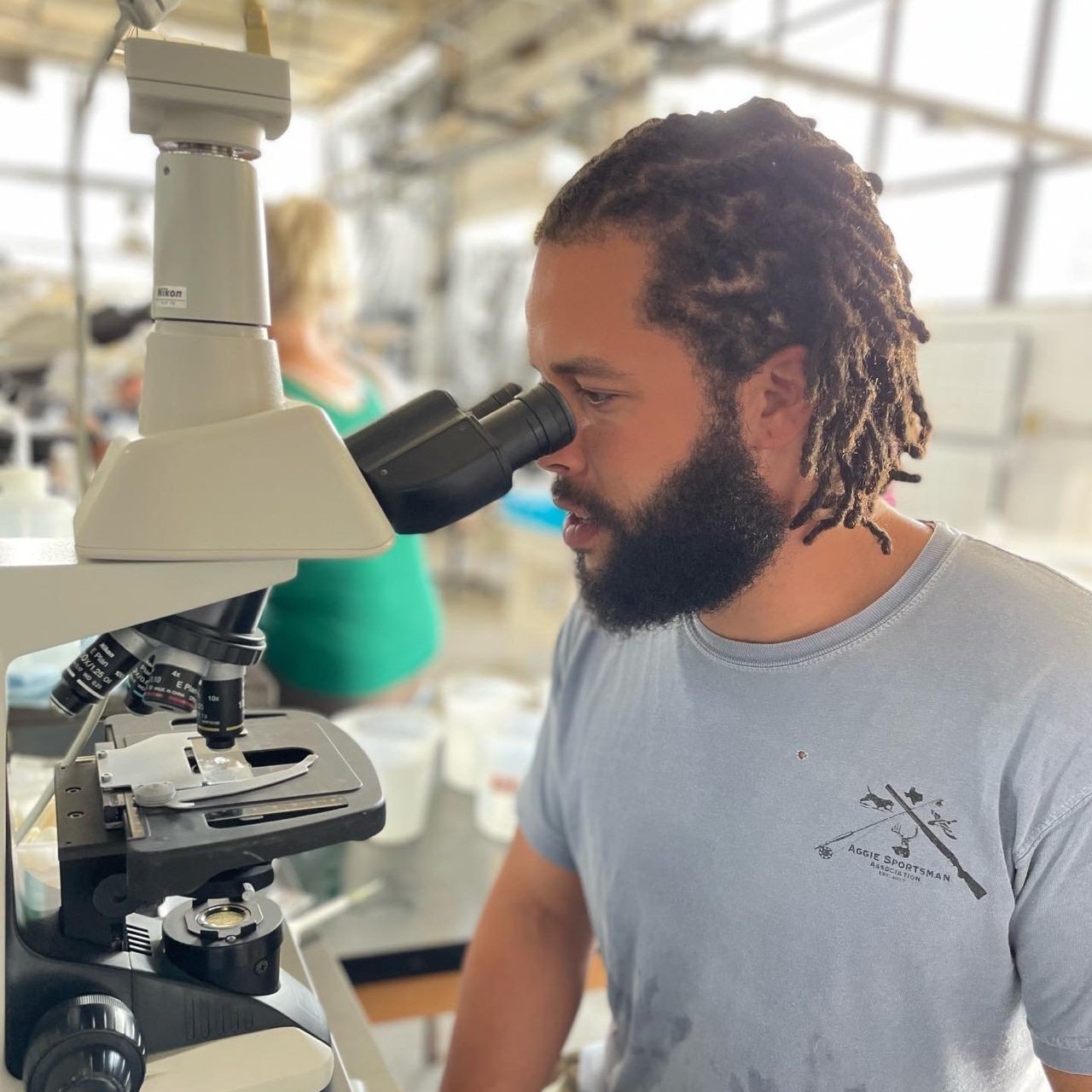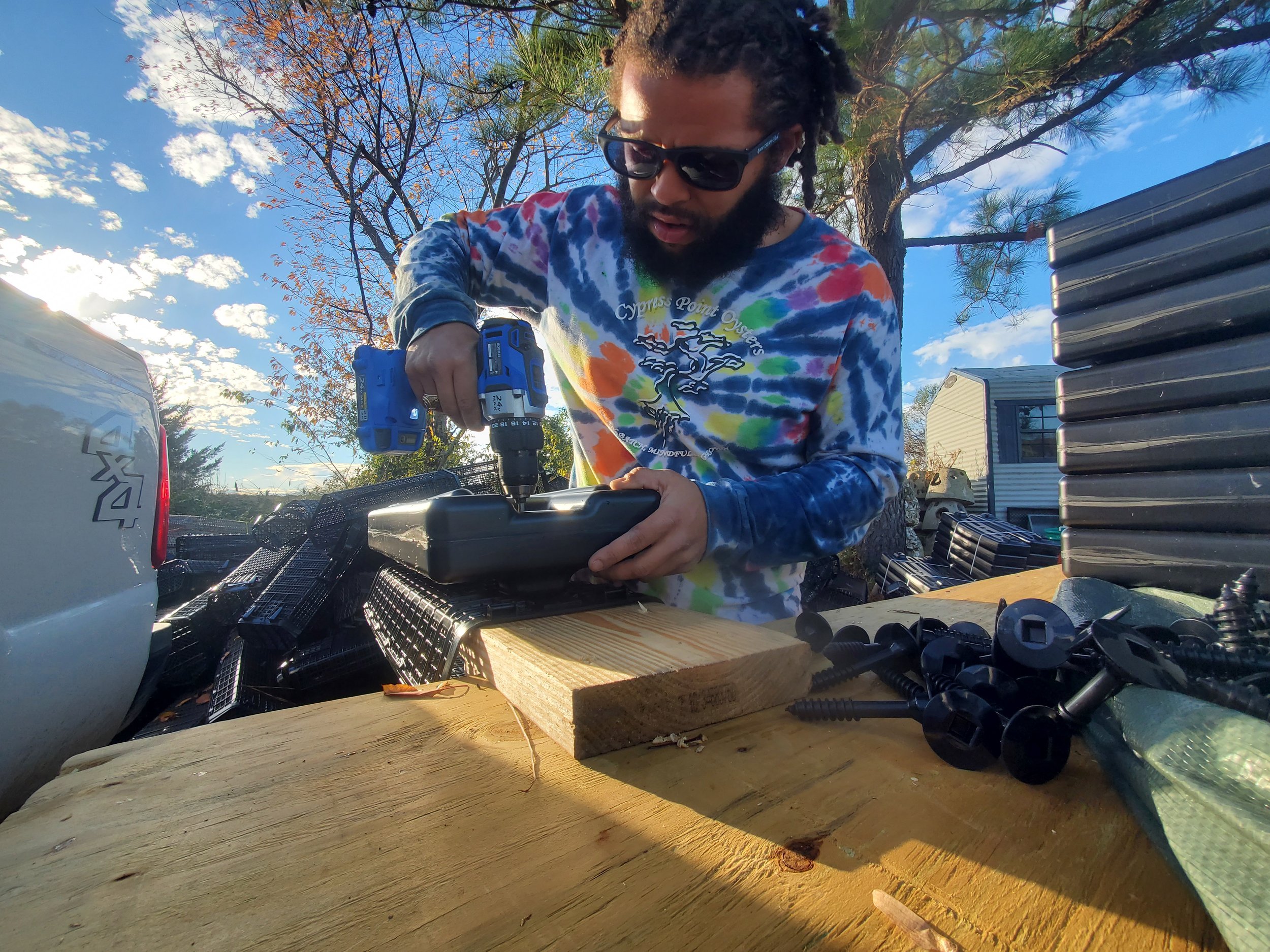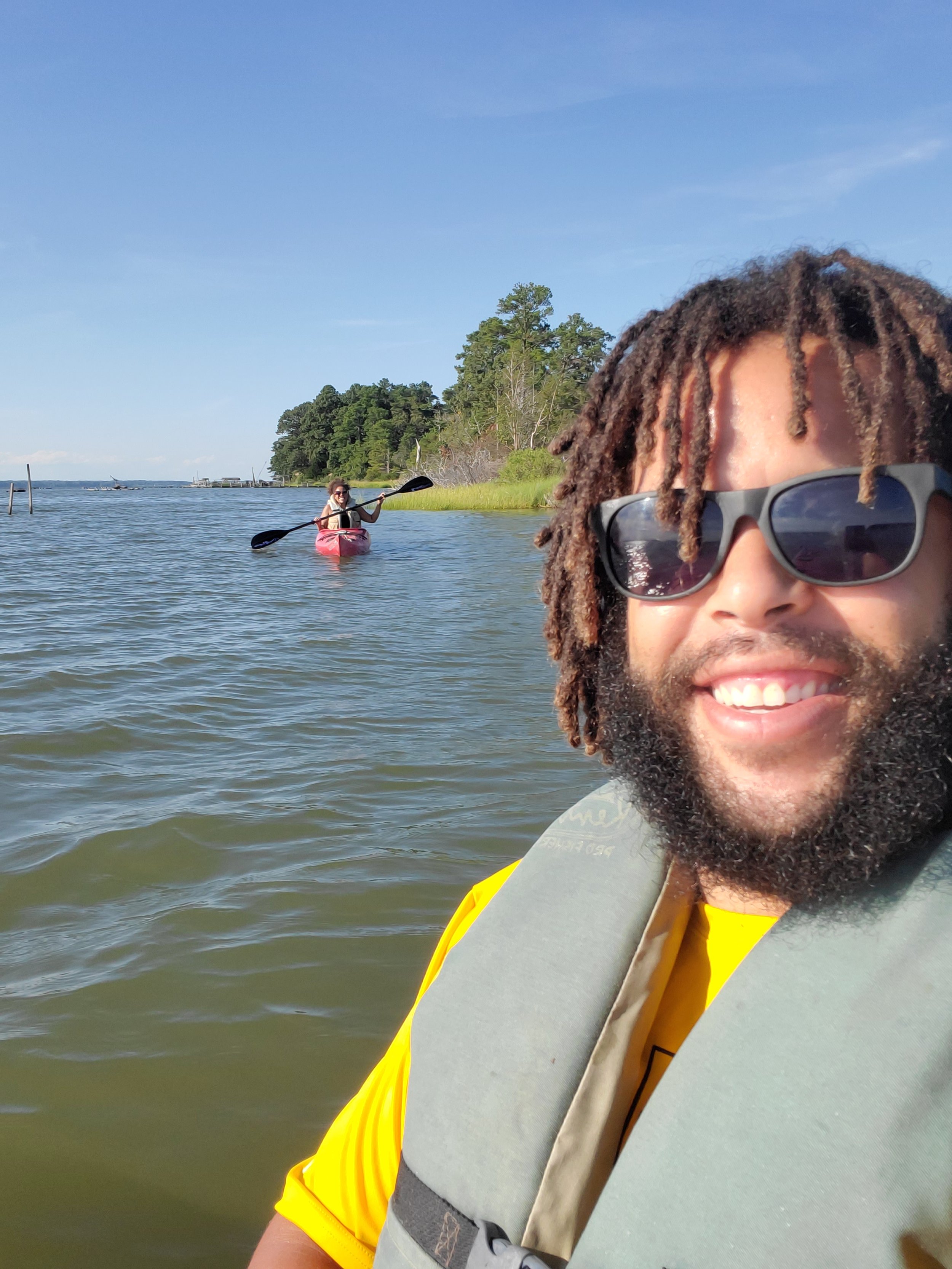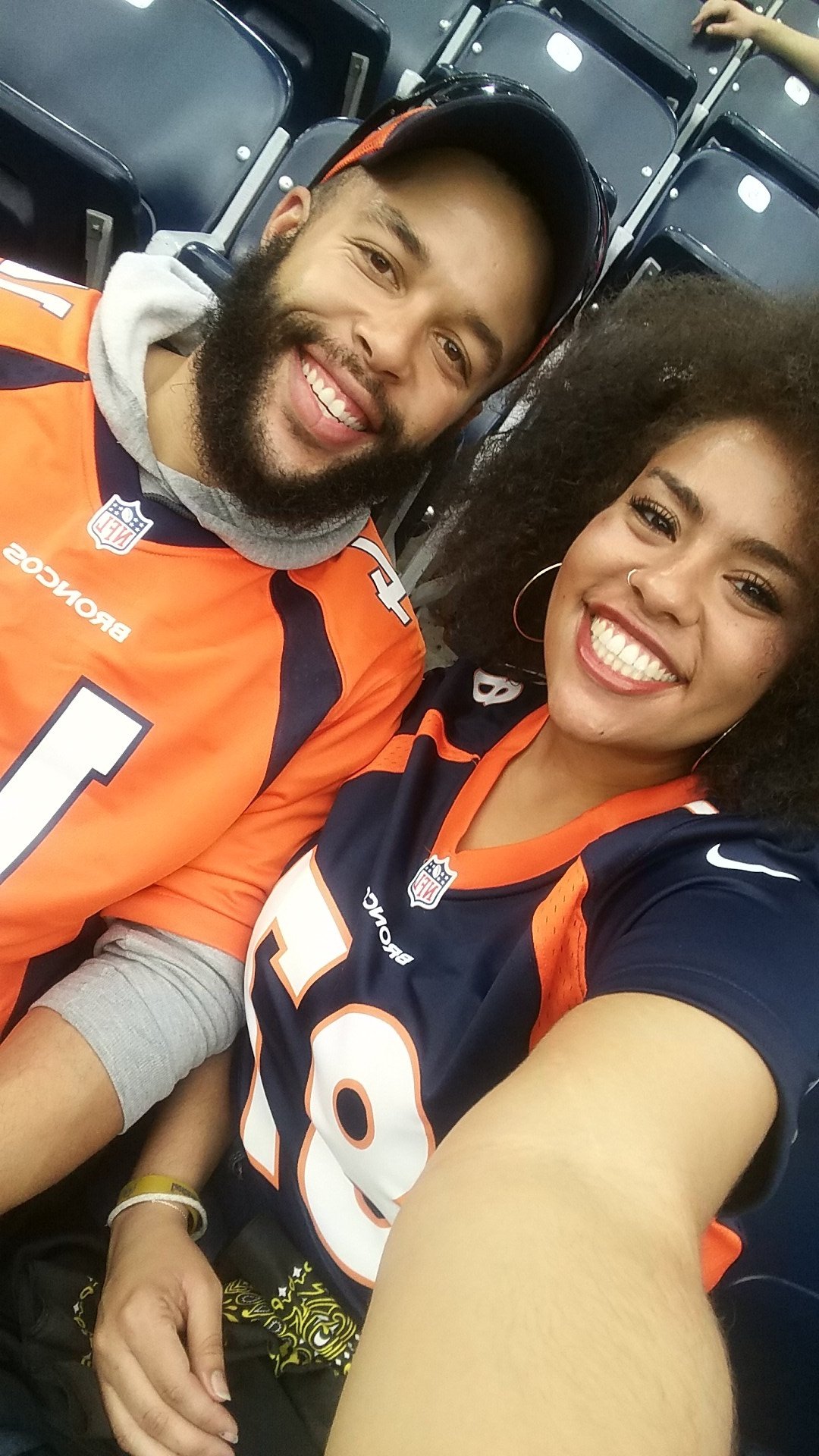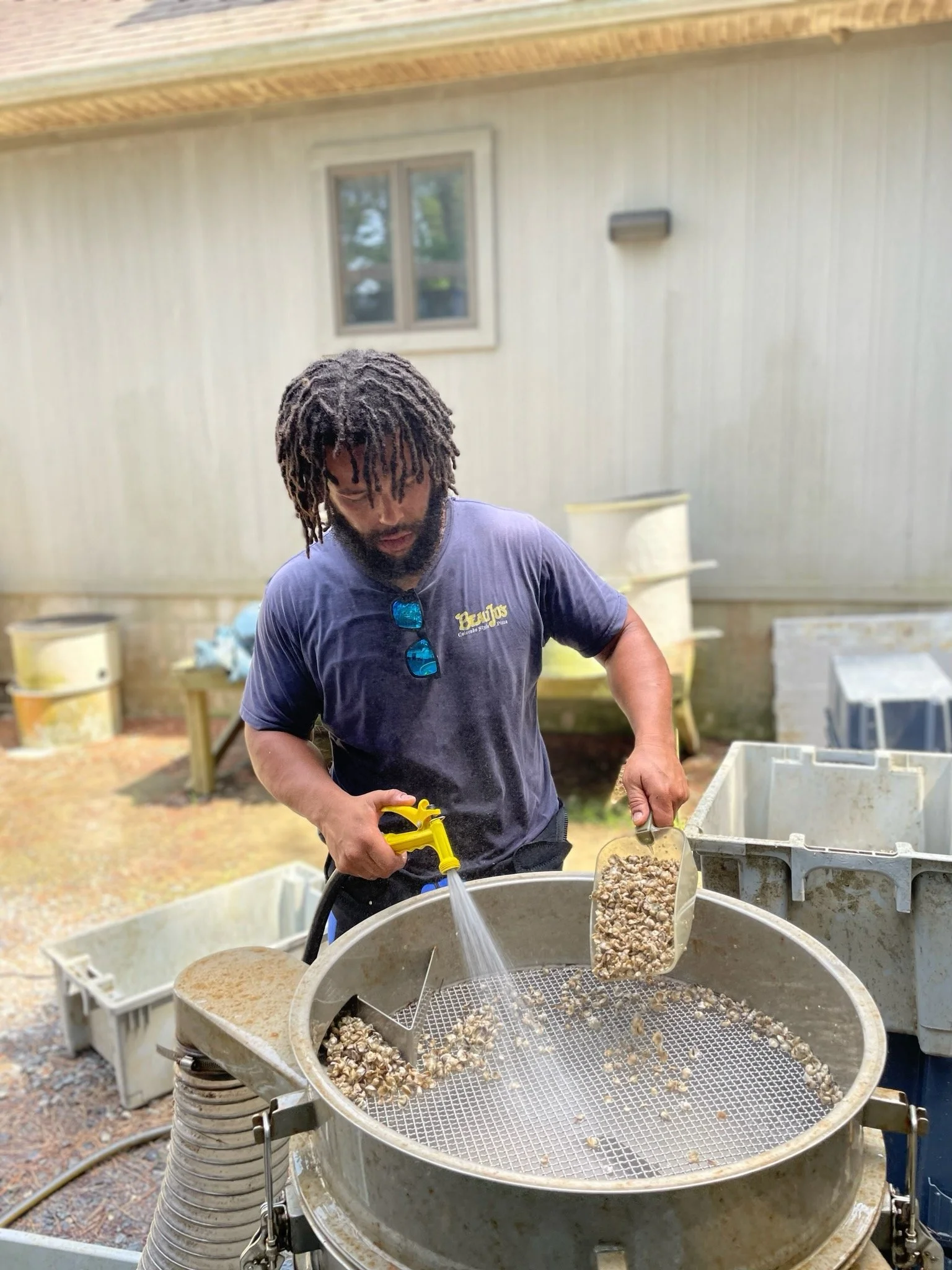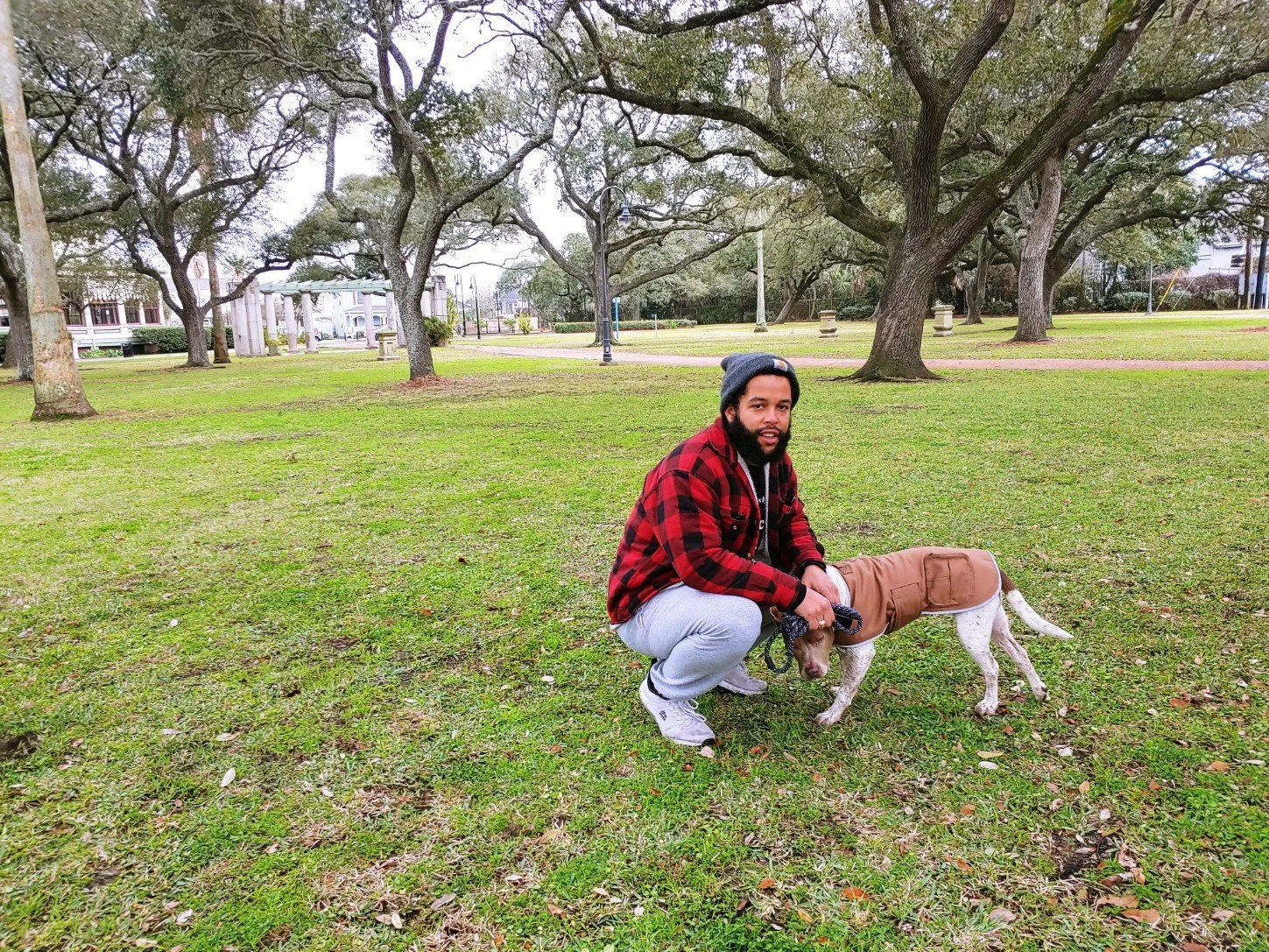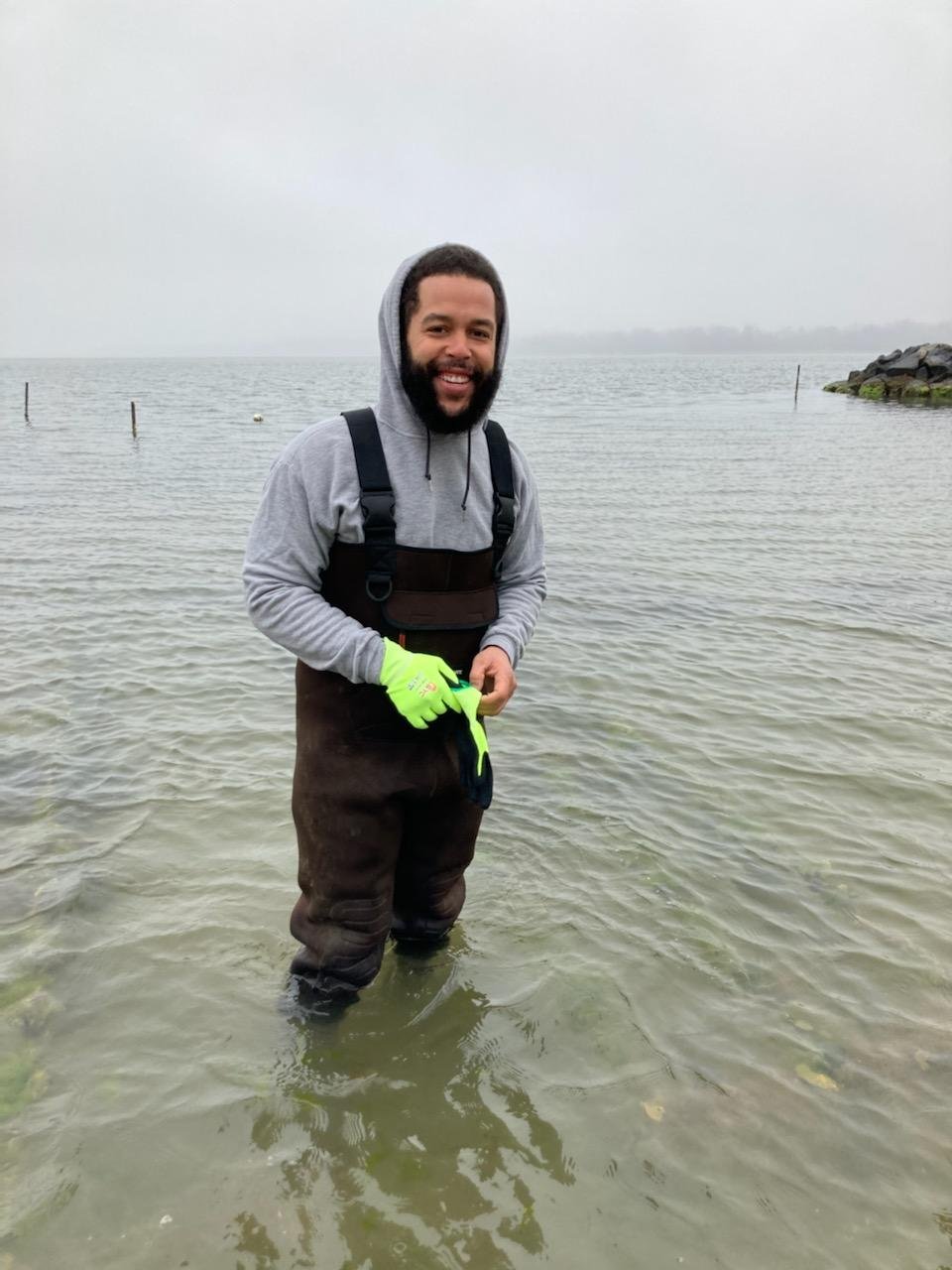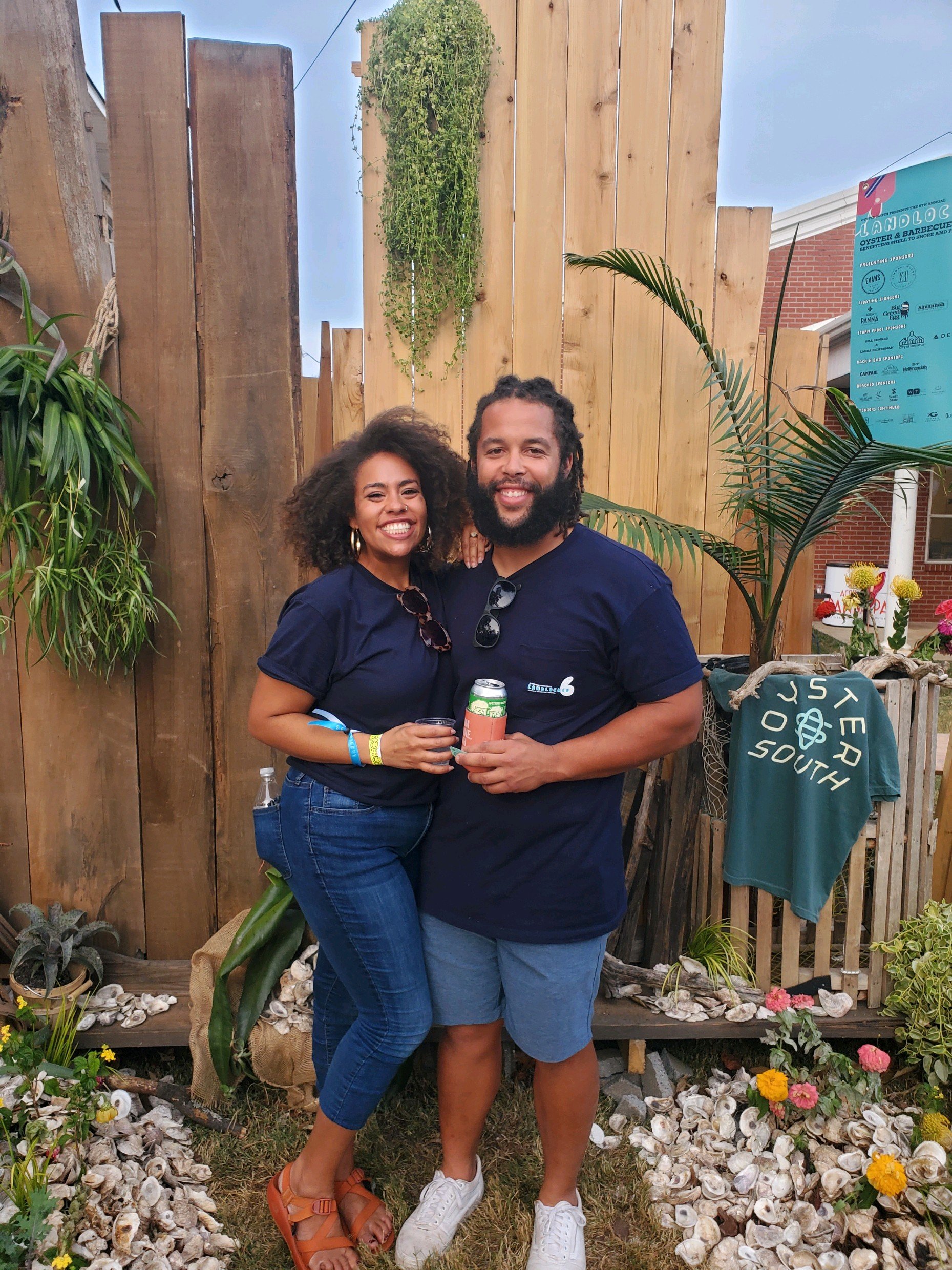Shellfishly highlighting USAS member Jordan Lynch!
USAS Board Member Carla Schubiger and team came up with a great idea to start highlighting some of the wonderful people who are members of the U.S. Aquaculture Society. Email Carla at carla.schubiger@gmail.com to learn more about being highlighted as a USAS member. Of course, being involved in USAS is a great opportunity. Nominations are now open. Contact Past-President Dennis McIntosh at dmcintosh@desu.edu to learn more about getting involved in USAS.
December Edition!
Jordan Lynch, B.S. - Farm and Lab Manager for the Commercial Shellfish Aquaculture Lab at the Virginia Institute of Marine Science. Interviewed by Dr. Carla Schubiger on November 18, 2022.
Please introduce yourself (briefly; name, position, what are you working on)?
My name is Jordan Lynch. I am the Farm and Lab Manager for the Commercial Shellfish Aquaculture Lab at the Virginia Institute of Marine Science (VIMS). We focus on problems and opportunities in the shellfish aquaculture industry and how farmers can improve production while promoting sustainable shellfish aquaculture that provides jobs and benefits to local communities and the environment. I have been at VIMS for a year. In addition, I started a company and began pursuing my own off-bottom oyster lease in Texas in early 2021. However, those plans are temporarily on hold for my current role. Previously, I have also worked with small-scale RAS systems for various species in research settings, pond culture of hybrid-striped bass in Texas, and large-scale commercial RAS construction for Atlantic salmon in Florida.
How did you get your first job in the field of aquaculture? Any what was the position?
My first position in the industry was as an Aquaculture Technician & Intern for Ekstrom Aquaculture at their hybrid striped bass operation in Texas. I spent three months living and working on the farm. Here is the story of how I ended up there:
During my undergrad (B.S. in Marine Biology, B.S. in Marine Fisheries), I did an interview project where I reached out to members of the aquaculture industry from across the nation. The goal was to learn how these individuals got to where they are today, their feelings on the industry currently, and where they see it headed. In addition, I wanted to learn which steps a young person could take if they are interested in pursuing a career in aquaculture. Two of the individuals I reached out to were Jim Ekstrom and Paul Zajicek, names many of our members will likely recognize.
Jim and I corresponded briefly but could not get anything lined up due to his travel schedule. I was, however, able to connect with Paul. Paul and I had a great conversation and decided to set aside time to meet in person at the Aquaculture 2019 triennial meeting in New Orleans. Once there, knowing I was interested in getting my start in the industry, Paul introduced me to Jim Ekstrom. He did not know that I had tried to connect with Jim previously! So it all worked out! In the end, it must have been the combination of my initiative to reach out initially, coupled with the introduction from the Executive Director of the National Aquaculture Association, that I got offered the position on the spot.
What advice would you give someone starting in the field of aquaculture (maybe a student)?
When I graduated high school, I was a hired hand for a man named Luke Little and his family. They had a couple of acreages and a small housing development that I helped maintain. Luke was in his seventies and had lived a rich and fulfilled life, and he was more than happy to fill my 18-year-old head with his wisdom. Looking back, Luke was one of the most influential people in my life, and I often think of him and his lessons. One saying he taught me that I have carried with me since is, “Everyone puts their pants on the same way – one leg at a time”. So it doesn’t matter who somebody is, their social or professional status, their gender, skin color, whatever—we are all the same. Once you have the mindset, it makes people much more approachable (networking!). This mindset has gotten me far in life. However, it has also gotten me in trouble a time or two (with superiors)! Still, I would probably credit much of my success to Luke and the wisdom he had instilled in me.
What is something that most people don’t know about the aquaculture industry or your role in the industry?
I think that most people would be surprised to hear that aquaculture already provides over 50% of the seafood we consume. This number will continue to grow, as we live in a world where the health of our oceans is in a state of decline and the majority of fisheries are fully harvested, overharvested, or depleted.
Do you have a funny story to share about something that happened to you (field-related)?
I almost got knocked out by a grass carp once! In Texas, where I worked on a hybrid-striped bass farm, grass carp were stocked as fingerlings to help control algae and aquatic vegetation in the ponds. Unlike the bass, which are fed a set number of times per day, the carp have a near-limitless supply of food at their disposal. This means that when harvest time comes, along with the bass that weigh just a few pounds, there are also 20-pound grass carp roaming the water.
You might ask what the cause for concern is? Well, to harvest, you start with a large net at one side of the pond, and using tractors, it is pulled like a purse seine to corral the fish in one area. The bass are not the brightest, and they typically swim against the net, trying to force their way through. In contrast, the grass carp do not play that game! The grass carp jump! So, as I pulled the net, suddenly, a3-foot 20-pound (fish) missile shot out of the water, over the net, and right into my left shoulder. It was like being smacked in the arm with a baseball bat. My arm immediately went numb, and by the end of the day, I could barely raise it. (The people who worked there longer wore life jackets as body armor and hockey helmets!)
If you could be any aqua species, what would you be and why?
I would be a crocodile! As far as apex predators go, they are the perfect killing machine. They are fundamentally unchanged from the time of the dinosaurs, outside of getting a little smaller. Besides, there is not a lot that is going to mess with them. They are just really good at what they do.
Favorite seafood dish? Would you like to share your favorite recipe?
I honestly do not know if I have a favorite seafood dish—I love it all. But one I am particularly fond of is raw clams, which I discovered this year. Mercenaria mercenaria, to be specific. Of course, I love a good raw oyster, but there is a particular “bite” and sweetness to a raw clam that is just something else! Since discovering this, I have learned that raw clams are a little foreign to the palate of most Americans, even those who eat oysters. Still, I recommend trying it if you have the chance.
What is your favorite aqua and/or non-aqua past-time?
Favorite aquatic pastime would be fishing. Non-aqua would be hiking (or crying myself to sleep every week because the Denver Broncos are doing so poorly).
Anything people would be surprised to know about you?
Probably lots of things. The big one for many people is that I initially dropped out of community college and was a public works employee for 4 ½ years (water distribution and wastewater). Then, I was an industrial construction laborer for a couple of years afterward. A dirt bike accident in 2017 led to me being unemployed and in a sling for a couple of months. During that time, I decided I did not want to work in construction for the rest of my life. Thus, once I healed up, I took a union job on the Dakota Access Pipeline to save up some money, and then 4-5 months later, I moved to Texas to attend Texas A&M University at Galveston.
Do you have a superpower?
It would probably be my ability to fit in with most groups. Because of my background and experience in different fields and working with people from different walks of life, I feel comfortable in most spaces. That is something that many people cannot say. In addition, communication with those different groups becomes more effortless, as well. I think it is pretty common that we scientists can have difficulties communicating with the general public and vice versa. Still, my upbringing and background make it much easier to bridge that gap. Of course, the wise words of Luke Little help too.
